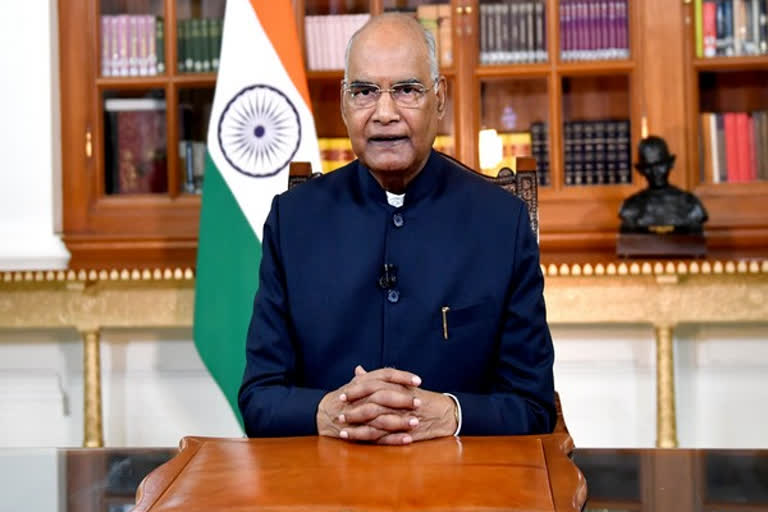New Delhi: The outgoing President Ram Nath Kovind has not left a mercy plea pending for his successor as he is completing his term on July 25 as India's 14th President. In fact, Kovind is also following the trend set up by his predecessor Pranab Mukherjee who disposed of all 34 petitions during his tenure from 2012-2017.
Normally, all the former Presidents of India have a record of passing on at least a few pending mercy pleas to their successors. But, President Kovind is not keeping any pending petitions for his successor. According to the President's Secretariat, Kovind disposed of all the six petitions that came up during his tenure from 2017 to date.
By rejecting all the mercy petitions, Kovind disposed of all cases from 2018 to 2020. He rejected the first mercy petition of Jagat Rai in April 2018 after receiving recommendations from the Ministry of Home Affairs (MHA) in July 2017. According to the President's secretariat, the last mercy petition rejected by President Kovind was of Sanjay. Within three months of receiving a recommendation from the MHA, Kovind rejected Sanjay's his mercy petition in July 2020.
As per the President's Secretariat, there was neither any commutation nor any pending cases left for Kovind's successor. However, Kovind's successor is likely to get four mercy pleas immediately after taking over the charge as the Home Ministry is yet to make any recommendations to the President over such pleas including that of former Punjab Chief Minister Beant Singh's assassin Balwant Singh Rajoana.
Significantly, the Supreme Court, in May asked the Central government to take a decision within two months on the petition of commutation of Rajoana's death sentence to life imprisonment, filed by an organization.
Also Read: President inaugurates ISKCON Sri Rajadhiraja Govinda temple in B'luru
Procedure for mercy petition:
Once the Supreme Court awards death sentence to a convict, he or she can submit a mercy plea to Home Ministry, the President's office or to the Governor of the State. A President can grant pardon, commute, suspend or remit a sentence of death under Article 72 of the Constitution of India.
The President, however, acts on the advice of the executive-the Prime Minister and his Cabinet. "The Union government takes the final decision on all such mercy pleas before sending to the President's office for his assent," a government official said.



